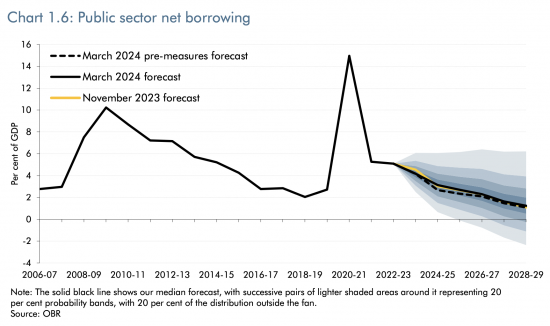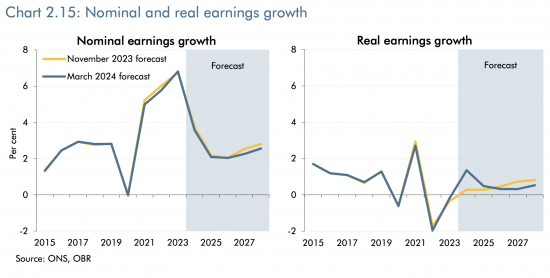Labour
The abuse of power is profoundly unappealing. It would seem that Starmer enjoys it.
Angela Rayner has made it clear she wants Diane Abbott back in the Labour fold, with the whip restored.
So has Ed Balls. I doubt he would have said this without talking to Yvette Cooper, his wife.
The mood on the BBC’s Question Time last night was very supportive of Abbott.
Keir Starmer is very clearly letting it be known he does not give a damn, or stories of the sort in The Guardian today saying there is no link between the Hester comments and the Whip being restored would not be possible. This stuff is based on deliberately placed comments.
So, Starmer is only too happy to exploit Tory abuse of Diane Abbott.
At the same time he is quite unwilling to say whether she may be a candidate in the general election that could still be little more than weeks away.
If that is not intimidation and abuse by Starmer I do not know what else it might be described as.
Diane Abbott is a flawed human being. So are we all. So too is Keir Starmer. But he wants to play God with the power that he has. People like that are very dangerous. The abuse of power is profoundly unappealing. It would seem that Starmer enjoys it.
Is the UK’s ‘debt’ ‘sustainable’?
My very simple and straightforward submission to the House of Lords’ enquiry into the sustainability of UK debt is now within their website. My effort (downloadable from the above link) is written below – I tried to give the submission a final twist: WRITTEN EVIDENCE SND0013 – SUSTAINABILITY OF THE UK’S NATIONAL DEBT INQUIRY 1.What... Read more
Locked Out of Development: Insiders and Outsiders in Arab Capitalism – review
In Locked Out of Development: Insiders and Outsiders in Arab Capitalism, Steffen Hertog critiques mainstream development models in the Middle East, focusing on state intervention and segmented market economies. Although Yusuf Murteza suggests the book under-examines neoliberalism’s prevalence, he finds its analysis on the state’s role in establishing the insider-outsider division in the economy nuanced and valuable.
 Clusters of economic and political theorists have long been discussing how different actors prioritise and frame their understanding of “development”. Post-development and degrowth scholars such as Arturo Escobar, Gustavo Escobar, Wolfgang Sachs, and Jason Hickel announced the death of the mainstream development model as a project. They argued “the project of development” may not be equally beneficial to all societies, since the project carries ethnocentric and universalist dimensions which contribute to the hegemony of the West.
Clusters of economic and political theorists have long been discussing how different actors prioritise and frame their understanding of “development”. Post-development and degrowth scholars such as Arturo Escobar, Gustavo Escobar, Wolfgang Sachs, and Jason Hickel announced the death of the mainstream development model as a project. They argued “the project of development” may not be equally beneficial to all societies, since the project carries ethnocentric and universalist dimensions which contribute to the hegemony of the West.
The ‘one size fits all’ idea of neoliberal development, which utilises finance and corporate capital, has gradually been replaced by alternative forms of development
The “one size fits all” idea of neoliberal development, which utilises finance and corporate capital, has gradually been replaced by alternative forms of development. Growing disillusionment with the Anglo-Saxon economic model increased the importance of examining alternative political and economic configurations both inside and beyond developed Western states. Varieties of Capitalism (VoC) theory’s significance can be grasped with its emphasis on existing similarities and differences within the institutions of developed economies. Recently, scholars have taken these insights seriously and benefited from the VoC framework to explain the reasons why political and economic institutions differ across societies. Discourse on the MENA region in terms of democracy and development may suffer from orientalist explanations that directly link religion and culture to the region’s political and economic stagnation. Steffen Hertog’s Locked Out of Development takes issue with what mainstream development scholars consider the political and economic inability of societies in the Middle East to take the Western route and realise neoliberal reforms in order to ensure economic development, productivity and innovation.
Neoliberal narratives suffer from a partial outlook. They trace the failures of development attempts by focusing on policymakers’ level of adherence to marketisation and privatisation.
Hertog’s main arguments throughout the book are threefold. First, neoliberal narratives suffer from a partial outlook. They trace the failures of development attempts by focusing on policymakers’ level of adherence to marketisation and privatisation. They consider ensuring faith in the market mechanisms of production and distribution systems as paramount. However, non-economic, country-specific problems matter. In the case of the Arab world, the deep dividing line of insider-outsider segmentation across societies has more explanatory power than classical narratives of having too much or too little market (81). Second, Hertog believes a comparative perspective situated within a global context carries crucial insights. The selected countries cannot be examined solely by focusing on within-region differences but should be considered within the global development trajectory and compared with developed countries (7). Third, the role of the state has a somewhat ambiguous position in development theory. The concept of a “developmental state” has added a further twist. The characteristics of the state and its symbiotic relationship with labour and the private sector need to be addressed when explaining factors contributing to the persistence of the Arab world’s development problem (8).
The role of the state has a somewhat ambiguous position in development theory
Hertog begins with a detailed examination of academic literature on the political economy of the Middle East, the varieties of capitalism approaches, and his conceptualisation of segmented market economies (SEME). The second chapter adopts a historical perspective and presents the case selected countries’ political and economic transformations after World War II. In the third chapter, Hertog reveals his argumentation of the SEME framework by bringing the state, labour market, business sector and skill composition to light. Detailed analysis of the country case studies follows, accompanied by SEME and future research directions. Lastly, Hertog sums up the reasons for the political and economic inability of the region to take the Western route.
Hertog argues that the VoC approach, with its emphasis on the heterogeneity of existing capitalisms, is useful to explain the unique characteristics of Arab capitalism. Different compositions of firms, the finance sector, networks, and the skill system create ideal-type interactions (those which typify certain characteristics of a phenomena) and lead to diversification within capitalism. The original VoC approach analysed several OECD countries from the developed world. In time, scholars used the explanatory power of VoC to explain the development performances of non-Western countries with specific modifications. Taking insights from recent accounts of VoC literature, Hertog believes the approach fits the Arab world well (8).
In broad terms, the state [in the Arab world] functions as the voice of insiders’ interests to quash any outsider’s attempt to reconfigure access to key resources.
There are two key dynamics in the region. As the second chapter discusses, the state has been a key actor in structuring the playing field between different interests to operate in the region (9). The interventionist and distributive characteristics of the state go hand in hand with the other dynamic, namely the persistence of insider-outsider division in the economy. In broad terms, the state functions as the voice of insiders’ interests to quash any outsider’s attempt to reconfigure access to key resources. Hertog warns that the nuanced structure of the SEME model applies only to the core members of the region, such as Algeria, Egypt, Jordan, Morocco, Tunisia, Syria, and Yemen. The key filter behind this selection of countries is their state-building projects between 1950 and 1970 (4-5).
Strategies of keeping public sector employment high with military jobs, large redistribution policies, food subsidies, and price controls are still prevalent in the region, demonstrating its nationalist and statist legacy.
Hertog finds the roots of his SEME model in Arab nationalism in the post-independence era. The state-building projects of the selected countries fused with nationalist and statist ideologies at the time. Discussion on the region’s long history brings up the question of path-dependence, which is used to describe the limiting power of past decisions over later trajectories. Hertog avoids engaging with these long-term theories, believing them unsuitable for a short book, and the key characteristics of the SEME model originated recently. Nationalisation policies and active intervention in the economy were characteristics of Arab nationalism (15). In state-building projects, Egypt and Syria set the parameters, which were later copied by other states. Strategies of keeping public sector employment high with military jobs, large redistribution policies, food subsidies, and price controls are still prevalent in the region, demonstrating its nationalist and statist legacy (28).
The detailed empirical discussion of the SEME is at the heart of the book. The framework is constituted by the state, labour market, business sector and skill system (9). The distributive character of a state can be located by examining the share of public employment, which remains high from a global perspective. Also, the state extensively regulates labour markets, holding key strongholds to access land and credit (29-30). Hertog argues these factors lead to segmented labour and private sectors, while keeping the skill level low. The presence of the state in the labour market ensures insider-outside division. Since there is little mobility, insiders rarely lose their position. Outsiders cannot reach to the welfare protection schemes by the state. This leads to social exclusion and an unproductive environment (32-48).
Hertog claims state intervention in the private sector creates unique opportunities for crony networks, whereby politically connected companies benefit from credits and licences.
Similar dynamics take place in the business sector, where large firms and clusters of small firms coexist (55). Hertog claims state intervention in the private sector creates unique opportunities for crony networks, whereby politically connected companies benefit from credits and licences. Business actors with outsider status engage in unproductive small-scale activities (58-60). The skill system needs to be thought of in relation to the segmented labour and business sectors. Low skill levels prevent mobility and limit innovation and technological development (69).
Overall, Hertog argues that state intervention in the region establishes the insider-outsider division in the economy. Hertog’s emphasis on bringing the state back into the analysis is beneficial. In the field of comparative politics, the idea of the state as an autonomous actor remained on the margins until the 1980s. The book’s limitations come in two forms. First, it doesn’t mention how global capitalist relations fit into the SEME. Hertog’s defence with the limitation of economic globalisation in the region may not offer a solution, since the dynamics of global capitalist accumulation depend on drawing materials from peripheral countries without contributing to them. Second, Hertog’s claim of neoliberalism’s low presence in the Arab world is dubious. Several scholars (Jason Hickel, Philip Mirowski) argue that states with strong capacity can implement the necessary reforms for deregulation and privatisation. Thus, the presence of neoliberalism and strong state capacity is not mutually exclusive. In the Middle East, we see a unique mixture of neoliberal policy reforms with strong state capacity. Even though Hertog constructs his own case, adapting earlier approaches to VoC and development topics and to explain the MENA region, policymakers, development specialists, and academics will find dry economic analysis alone is not enough. More nuanced analyses that consider the symbiotic interactions between the state, the business sector, and labour force are necessary. Only by doing this is it possible to acknowledge how politics mingle with economics, and to design alternative development programmes in response.
This post gives the views of the author, and not the position of the LSE Review of Books blog, or of the London School of Economics and Political Science.
Image Credit: AlexAnton on Shutterstock.
Why is everything so difficult for Rachel Reeves?
I watched some of Rachael Reeves’ interviews over the weekend. I have seen many before. One of the recurring themes is that she is not going to hesitate from making ‘the difficult decisions’.
Reeves does not define precisely what these decisions are. That is typical of Labour’s approach to any issue at present. If it cannot prevaricate nothing is ever said.
What is more telling is the continual reference to difficulty.
Is she trying to claim that she is very clever, and so only she can do these things?
Or, alternatively, is she suggesting that she is a normal mortal and that, therefore, what is going to be required of her is hard ? It really is not clear.
Maybe there is, anyway, a third option that I have not thought of, but whichever it is, this perpetual claim is deeply unappealing.
Is she saying that it is hard to decide to underfund the NHS, and so kill people , because that is what it appears that she plans to do?
Alternatively, is it hard to deny people the education that they deserve?
Or the social care that they need?
Or justice for those who have suffered from crime?
Alternatively, is it instead that it is hard to impose significant levels of taxation on those least able to bear it whilst allowing much lower levels of tax on those with the capacity to pay, which is exactly what is happening in the UK present, about which she is refusing to do anything?
Or maybe she is just saying that is it just really difficult to make any decisions when you lack a moral compass, a political philosophy, and any rational explanation for why you seek the power that you so obviously crave?
My suggestion is a simpler one. If you really think that being Chancellor is going to be so difficult that you have to talk about it all the time then you’re not up to the job .
No one pretends that such a role is ever going to be easy. In that case what it requires is that the person willing to undertake it have the confidence to take on the task.
I’m not asking for the self-confidence that tips into arrogant foolishness. We all know the risks in that.
Instead, what is required is that quiet self-confidence that competence delivers.
Rachel Reeves clearly thinks she lacks that because of her perpetual references to the difficulty of the task. It really does make me wonder whether she is fit to undertake it.
Would we be better off without Labour?
One of the most powerful lines in the film ‘Munich’ is:
‘Hope' is waiting for someone else to do it. We'd all be much better off without it.
That line came up in a conversation I was engaged in last night.
It was suggested that there is no hope of Labour doing anything of consequence right now that might improve any known situation, whether they get into office or not.
The question asked, in that case, was whether we would be better off without them?
Beliefs or purchases?
Remarkably we are now subjected to a ‘prevent’ idea that objects to ‘beliefs’ – including socialism! – but apparently not including neoliberalism or even Conservatism. These pseudo religious beliefs are always liable to attack. That is why knowing – not a belief, but a fact – where money comes from is so important. When you... Read more
Sometime soon Labour needs to talk about the macroeconomic reality that we face, because it is probably nothing like as good as Hunt predicts
According to the Chancellor, all that matters about the Budget is that he meets his fiscal rule.
For reasons that no one is aware of and which no one, including the City, cares about, he thinks that his fiscal rule must require that he reduce the scale of the national debt - because that has been the story with which the Tories have been beating Labout for well over a decade.
Everything in yesterday's budget was, in that case, designed to meet this goal, and according to his own data, he does meet it:

That downward line in the middle of the fan to the right is all he cares about.
There is a cost to this. If the government borrows less, someone else has to borrow more: that's the way in which any economy works if new money (all of which is debt-based) is to be created, which is the actual rule that cannot be broken because, unlike so-called fiscal rules, it is based on facts. So this is the sectoral forecast which shows who might be net saving and borrowing over the next few years:

Households are going to borrow more, by saving less. That's the price of the government demanding more in tax to reduce its debt.
The overseas sector is still going to save in sterling.
And business is going to apparently start borrowing quite a lot, presumably because there is going to be a heavy investment to fund the growth that all politicians think is just around the corner, but probably is not.
Is that likely? Yes, with regard to reduced household saving. Income taxes are going to rise much faster than GDP growth, as I showed yesterday:

That cut in household savings is likely in that case. People can't both save and pay more tax when already pushed to their limits.
But will business invest heavily using borrowed funds so that the government might borrow less? I really do not think it is likely.
My reasons are that the GDP forecasts look like this:

GDP per head grows well for one reason: it is assumed that immigration falls, dramatically:

When someone says a behaviour pattern will change radically, they have to give a good reason: there is none here. The reality is that migration is going to increase rapidly in this world as a result of climate change: that's the fact, and the above chart is not.
In that case, this chart on nominal and real earnings growth looks to be fanciful:

Rea; earnings growth of less than 1% is incredibly low and does not inspire business confidence or stimulate considerable investment. If GDP growth is actually going to be much more population-based than the OBR suggests, then even that growth is in doubt.
Can I, in that case, see the fall in debt that Hunt predicts? I can't, I admit.
But I can still see the tax explosion.
Labour really does need to say how they are going to deal with all of this because the state of the government's books is now known. I am not, however, expecting to hear much at all. If you think the credit card is maxed out and everything spending commitment has to be covered by tax, as Labour apparently does, there is little wriggle room here. Sometime, Labour is going to have to do some real macroeconomics and talk about debt financing. But I will not be holding my breath in anticipation.
What is Labour going to fund their spending with now?
As predicted some time ago, Jeremy Hunt undermined the whole Labour election strategy by closing the non-dom rule yesterday.
According to Labour, doing this was going to fund almost every policy that it ever talked about. The sum likely to be collected as a result of this change might have been £3 billion or so at best, but as I indicated in the Taxing Wealth Report 2024, there are very good reasons for thinking it might be somewhat less. The Budget document thinks it more like £3.1 billion.
Since I had campaigned on this issue since about 2005 and sat on working parties about replacing this rule in the Treasury in 2009 and afterwards, when I was still invited to go there, and the proposal now tabled looks remarkably like what was discussed at that time, I have no complaints about this happening.
But where does this leave Labour? It was going to apparently fund all its new NHS staff and all the appointments that they would offer and other things besides using this money. Hunt has now claimed to have used it to fund national insurance reductions. Does that mean Rachel Reeves now has nothing left that she can talk about?
So far, I have not heard enough of Labour spokespeople to work out what they are going to say, but Hunt has definitely double-bluffed them. This line of attack is now no longer available to Labour. What are they going to use to pay for things now, given that they insist that taxes fund spending and that the national credit card is maxed out (both of which claims are completely wrong)? It will be fascinating to see.
Today’s budget is, like all the others, unnecessary
Indeed the whole idea of today’s ‘budget’ feeds into the trope that Government needs ‘our’ money. It doesn’t. Affordability and maxing out the government national credit card (according to Keir Starmer) were pervasive. Government doesn’t have any need of a financial budget. It does need a resources budget. That is, have we got enough doctors,... Read more
We have a tax time bomb waiting to explode in the UK. Is Labour going to let it go off?
I have spent much of this afternoon, a) talking to journalists and b) trying to work out how the Budget adds up.
The first task was relatively easy. The second was less so.
In part, the great cost saving in the Budget is on interest: it has been assumed that the cost of government borrowing will fall quite quickly to 3% rather than the 4% assumed last November. That finds £10 billion.
But, that was not enough, so I went on a hunt for the rest that explained how Hunt was going to give tax away. I finally got to Table A5 of the Annex to the Office for Budget Responsibility's Economic and Fiscal Outlook publication that supports the Budget data, and there I smelt a rat.
I prepared the following chart by noting n0minal GDP from table A3 of that annex for 2022-23 to 2028-29 and then noting data from table A5 on income tax, national insurance, VAT and corporation tax over the same years.
Then I calculated GDP and tax receipts for each year as a ratio of the 2022-23 figure to show growth in them, and then plotted this to get this chart:

The two blue lines in the centre that almost match each other are GAP growth and VAT, which unsurprisingly match each other almost exactly.
National insurance declines markedly: Hunt is pretending that he really will get rid of this tax.
But then note what happens with both income tax and corporation tax: both rise at rates well over anything that can be justified by the growth in GDP.
Corporation tax is a small tax; silly forecasts can be made for it, and this one is absurd: profitability is not going to grow at that rate.
But, income tax is what really matters. The forecast increase is utterly disproportionate. The growth in tax owing each year is at a rate almost double the rate in the growth of GDP.
To put this in context, income tax shown to be due in 2028/29 is £48 billion more than it would be if it grew at the rate of GDP growth.
In other words, the actual rates of income tax increase we will all actually be suffering because of fiscal drag over the next few years are going to be very high indeed - and that is how Hunt is supposedly balancing its books.
In that case, the real question to ask is, what is Labour going to do about this? We have a tax time bomb waiting to explode in the UK. Are they going to let it go off?